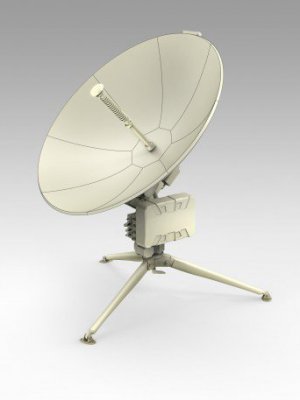Introduction
Portable array technology is transforming wireless communications by providing flexible, high-performance solutions for on-the-go connectivity. Ideal for military, emergency response, live events, and IoT, these systems offer rapid deployment, superior signal reliability, and future-proof scalability.
This article covers:
What portable arrays are and how they work
Key benefits over traditional antennas
Major industry applications
Future trends in portable wireless tech
1. What is a Portable Array?
A portable array is a compact, multi-antenna system designed for high-speed wireless communication in dynamic environments. Key features include:
Mobility: Lightweight, easy to transport and deploy
Adaptability: Adjustable beamforming for optimal signal direction
Scalability: Supports 5G, Wi-Fi 6, and satellite communications
MIMO Technology: Enhances speed and reduces interference
How They Work
Portable arrays use phased-array antennas to electronically steer signals without moving parts. Components include:
Multiple antenna elements
Digital signal processors (DSPs) for real-time adjustments
Battery or solar-powered operation
2. Key Benefits
A. Rapid Deployment
No permanent infrastructure needed
Ideal for disaster recovery and field operations
B. Superior Signal Performance
Beamforming targets signals efficiently
MIMO boosts data throughput
C. Cost & Energy Efficiency
Lower installation costs than fixed towers
Solar/battery options for off-grid use
D. Future-Proof Design
Upgradable for new wireless standards
Compatible with satellite and IoT networks
3. Major Applications
A. Military & Defense
Tactical comms in remote areas
Drone control & surveillance
B. Emergency Response
Restores connectivity post-disaster
Mobile command centers
C. Live Events
Temporary 5G/Wi-Fi for concerts & sports
Lag-free HD streaming
D. IoT & Smart Farming
Real-time sensor networks
Autonomous machinery control
E. Remote Work & Research
Satellite internet for field teams
Off-grid office solutions
4. Future Trends
A. AI-Optimized Beamforming
Machine learning improves signal paths
B. LEO Satellite Integration
Starlink-compatible portable arrays
C. Ultra-Compact Designs
Backpack-sized for extreme mobility
D. Energy Harvesting
Solar + kinetic power for extended use
E. 6G & Terahertz Support
Prep for next-gen ultra-high-speed networks
5. Choosing the Right Portable Array
Consider:
Frequency bands (Sub-6GHz, mmWave, satellite)
MIMO configuration (2x2, 4x4, 8x8)
Battery life & power options
Durability & weather resistance
Conclusion
Portable arrays are redefining wireless connectivity by bridging mobility and performance. Early adopters will lead in flexible, future-proof solutions.
Need a portable array? Contact us today!


